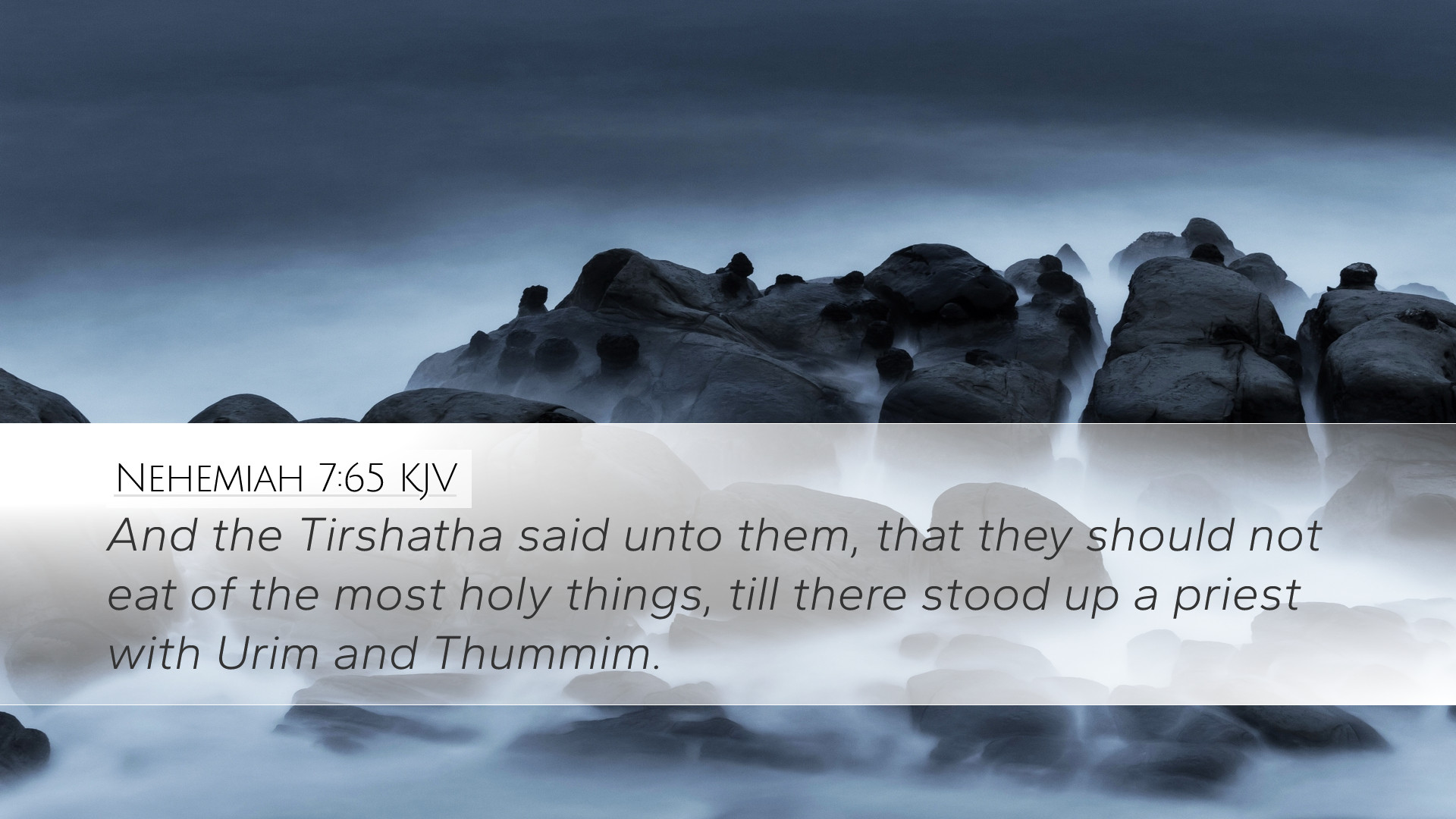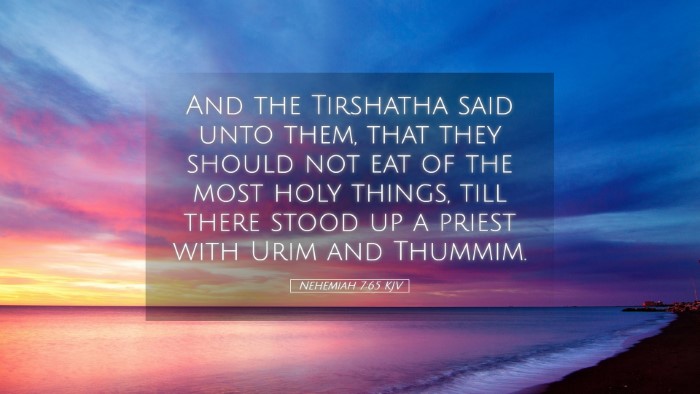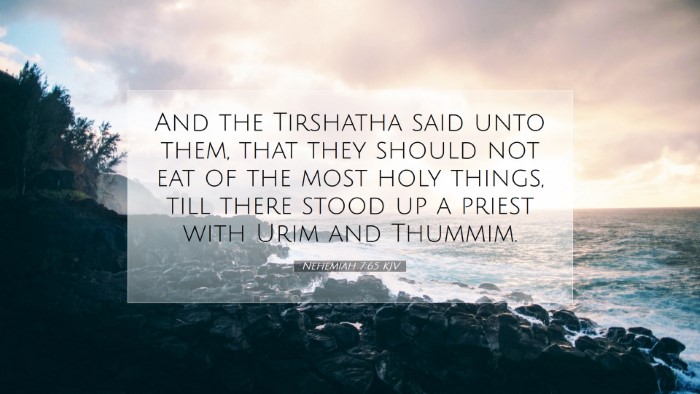Commentary on Nehemiah 7:65
Nehemiah 7:65 states, “And the Tirshatha said unto them, that they should not eat of the most holy things, till there stood up a priest with Urim and with Thummim.” This verse, situated within the broader context of Nehemiah’s efforts to restore Jerusalem and re-establish its traditions, presents a nuanced discussion about holiness, leadership, and the priestly functions that are essential for worship.
Contextual Background
The book of Nehemiah is centered on the return of the exiles from Babylon and the subsequent rebuilding of the walls of Jerusalem. In chapter 7, the focus shifts to the organization of the people and their roles within the community. Nehemiah’s careful governance includes not only physical reconstruction but also spiritual and liturgical order.
Explanation of Key Terms
To fully understand this verse, we must consider the terms “Tirshatha,” “Urim and Thummim,” and “holy things.”
- Tirshatha: This term refers to the governor of Judea, a title implying authority and leadership. Nehemiah is likely referred to as Tirshatha in this context, emphasizing his role as a leader restoring order.
- Urim and Thummim: These were priestly tools used for divination and decision-making, believed to be a means through which God communicated with His people. Their absence in this context indicates the need for proper spiritual guidance and a functioning priesthood.
- Most Holy Things: These pertain to the offerings and sacrifices that were considered sacred in the worship of Yahweh, highlighting the importance of having a legitimized priesthood to mediate between God and His people.
The Importance of Holiness and Order in Worship
This verse underscores the significance attached to holiness in Israelite worship. Commentators like Matthew Henry emphasize that the most holy things require designated mediators—namely, a priest equipped with the necessary spiritual authority (in this case, the Urim and Thummim).
Henry notes that the prohibition against partaking of these holy elements without a priest reflects a broader theological principle: God is a God of order, and worship must be conducted according to Divine statutes to be acceptable. The presence of a priest symbolizes the intermediary role necessary for approaching God.
The Role of Leadership
Nehemiah’s declaration as the Tirshatha highlights the responsibility of leaders to uphold spiritual integrity within their community. Albert Barnes remarks that a leader's role is not only to build physically but also to foster spiritual renewal. Nehemiah exemplifies this dual role, ensuring that the community adheres to divine standards in worship.
Leadership in the church today can draw valuable lessons from Nehemiah’s approach. Effective pastoral leadership involves ensuring that congregational worship aligns with Biblical mandates, which may include implementing guidelines around sacramental practices and teaching the significance behind them.
Spiritual Significance of the Urim and Thummim
Adam Clarke elucidates the sentiment behind requiring the Urim and Thummim: they represent Divine illumination and truth. Without these sacred objects, the community faced a spiritual void regarding making crucial decisions and discerning God’s will.
This absence speaks volumes to the modern church. In a context where spiritual engagement can feel ambiguous, believers must seek situations where Divine direction is sought through prayer, Scriptural engagement, and communal discernment with qualified leaders. Clarke's insight reminds pastors and theologians of the importance of seeking genuine experiences of God’s guidance.
Conclusion: Reverence and Responsibility
Nehemiah 7:65 encapsulates a profound truth about the necessity of holiness, the role of leadership, and reliance on Divine guidance. For pastors, students, and scholars, the message is clear:
- Worship requires a framework where God's holiness is honored.
- Leaders bear the responsibility to ensure that such frameworks are established and maintained.
- The community must recognize the significance of authoritative spiritual guidance in discerning God’s will.
As we engage with this verse and its implications, may we continually strive to honor God’s holiness in our worship, our leadership, and our communal life together in Christ.


